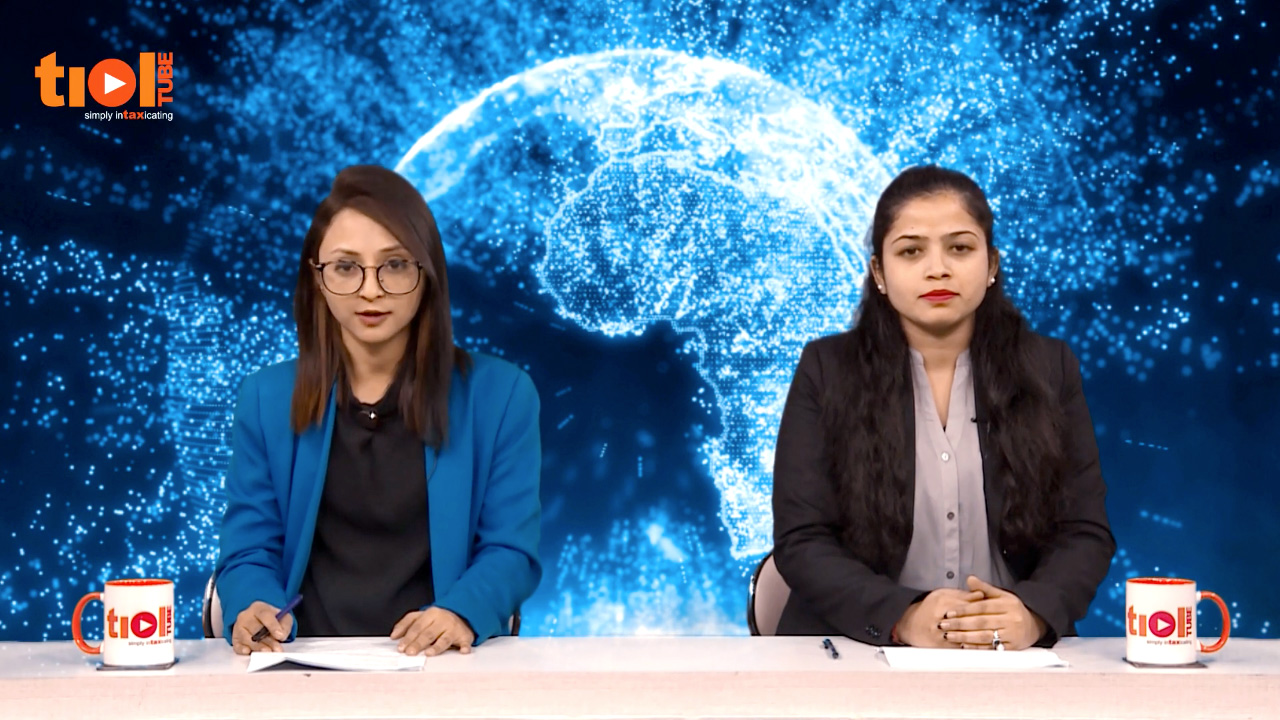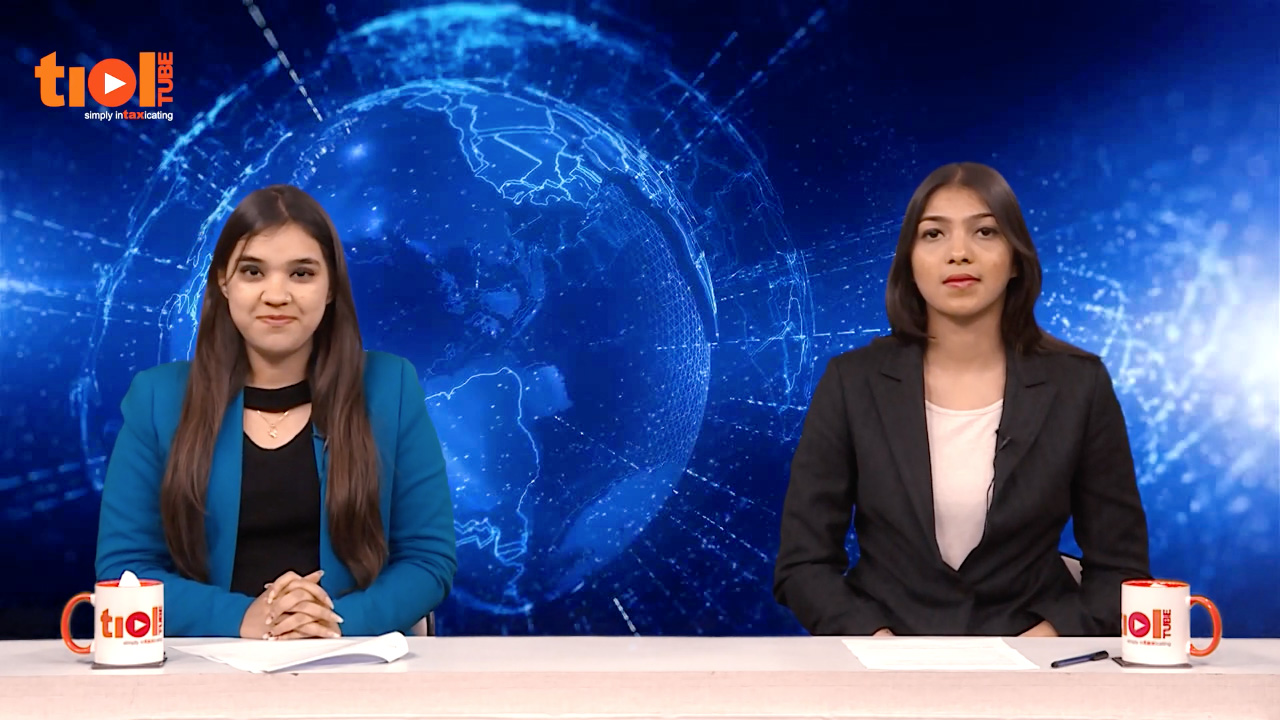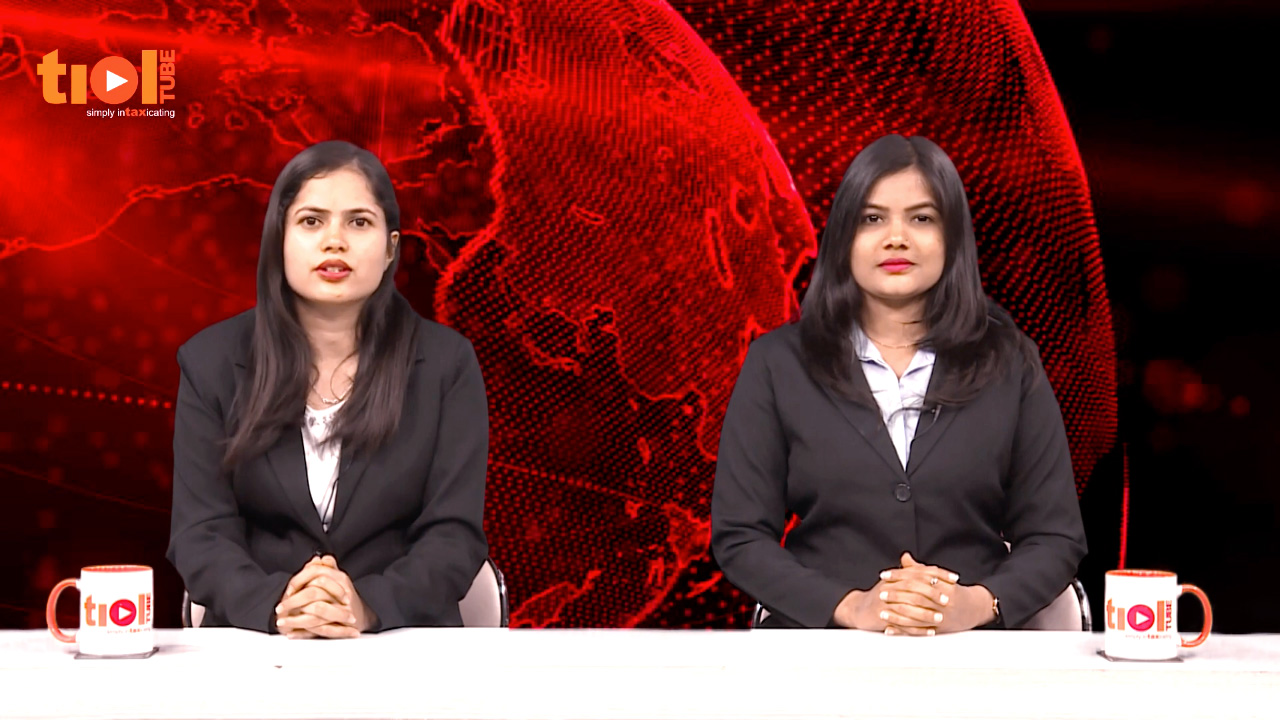|
SERVICE TAX
2020-TIOL-36-CESTAT-MUM
Warburg Pincus India Pvt Ltd Vs CCE
ST - After export of service, the appellant filed refund claims under rule 5 of Cenvat Credit Rules, 2004 for refund of cenvat credit lying unutilized in their cenvat credit account - the said refund claims were rejected on the ground that the appellant failed to show the nexus of the input services with the output services and, therefore, they are not entitled to avail cenvat credit on the services in question - appeal to CESTAT.
Held: It is a fact on record that, at the time of availing of cenvat credit, it was shown by the appellant that, at any time no question was raised for inadmissibility of the cenvat credit - in these circumstances, at the time of filing of refund claim, it cannot be questioned that the appellant is not entitled to CENVAT credit - therefore, relying on the decision in appellant's own case - 2018-TIOL-1229-CESTAT-MUM for the earlier period, the appellant is entitled to refund of the cenvat credit lying unutilized in their cenvat account and, accordingly, the impugned orders are set aside - resultantly, appeals are allowed : CESTAT [para 6, 7, 8]
-Appeals allowed : MUMBAI CESTAT
2020-TIOL-35-CESTAT-BANG
CSB Bank Ltd Vs CCT & CE
ST - The assessee-company is registed for providing Banking and Other Financial Services, Credit/Debit Card Service, Renting of Immovable Property Services and Business Auxiliary Services - On audit of records for the relevant period, it was observed that the assessee availed irregular credit on input service without invoice and based on debit notes - Duty demands were raised for reversal of the same.
Held - It has consistently held by the Tribunal and the High Court in various decisions that CENVAT credit can be availed on the basis of debit notes if it contains all the details as specified under Rule 9 of the CCR and in the present case, the debit notes contain all the details which are required under Rule 9 and therefore they are valid documents for claiming CENVAT credit - Hence demands seeking reversal of credit are untenable: CESTAT
-Assessee's appeal allowed : BANGALORE CESTAT
CENTRAL EXCISE
2020-TIOL-35-HC-KERALA-CX
Malabar Regional Cooperative Milk Producers Union Ltd Vs CCE
CX- Whether the Tribunal was right in reopening a concluded appeal under the guise of rectification of a mistake apparent on the face of record, based on a subsequent decision of the Hon'ble Supreme Court, by treating that the subsequent declaration of law is a reasonable ground to reverse its earlier decision in the appeal and to decide the matter afresh against the appellant?
Held - Principle underlying in the decisions in the cases of Mepco Industries Ltd. - 2009-TIOL-121-SC-IT-LB KilKotagiri Tea and Coffee Estates Company Ltd. [(1988) 174 ITR 579]], Bharat Bone Mill - 2007-TIOL-31-SC-CT , The Asok Textiles Ltd. - 2002-TIOL-959-SC-IT-LB , Smriti Properties Pvt. Ltd. [(2005) 191 ELT 128 (Cal)] and Deva Metal Powders Pvt. Ltd. - 2007-TIOL-221-SC-CT , when analyzed based on the facts of the case at hand, it is evident that, when the appeal was decided by the Tribunal through Annexure A order, the decision was taken based on the law as it stood then -in a subsequent decision of the Supreme Court, the law was declared as otherwise, based on a change of opinion -such a change of opinion of law cannot be taken as a 'mistake apparent on the face of the record' which could be rectified by invoking section 35C(2) of the Central Excise Act -further, such material cannot be used for unsettling the settled position attained through disposal of the appeal, alleging that there occurred any mistake apparent from the face of the record -it cannot be utilized for reopening a concluded decision, which had attained finality between parties inter se -therefore , the above appeal has to succeed - in the result, the question of law framed is answered in favour of the appellant and against the Revenue and the above Central Excise Appeal is hereby allowed to the extent of setting aside the impugned order passed by the CESTAT - as a result, the original order passed by the Tribunal(Annexure A) dated 9.9.2008 would survive : HIGH COURT [para 18]
- Appeal allowed : KERALA HIGH COURT
2020-TIOL-34-CESTAT-HYD
Virchow Laboratories Ltd Vs CCT
CX- Whether the appellant is entitled to the cenvat credit at the Visakhapatnam unit in respect of the services rendered in their Visakhapatnam unit on which the ST was paid by Hyderabad unit and the challan mentioned the name and details of Hyderabad unit only.
Held: Despite Hyderabad unit of appellant, instead of Visakhapatnam unit, paying ST tax on the GTA services and the challan also giving details of Hyderabad unit, there is no dispute that both form part of the same corporate entity and the services were used in the Visakhapatnam unit and that cenvat credit against the same challans was not availed by their Hyderabad unit - in view of the above, there is substantial compliance and agreement with rule 9(1)(e) of Cenvat Credit Rules, 2004 in the present case - therefore, the appellant is entitled to cenvat credit - impugned order is set aside - the appeal is allowed : CESTAT [para 6, 7]
-Appeal allowed : HYDERABAD CESTAT
2020-TIOL-33-CESTAT-MUM
Godrej Industries Ltd Vs CCE
CX - Issue in dispute is whether Assistant Commissioner was correct in canceling the bond/undertaking executed by assessee in terms of Rule 4 of Customs Rules, 1996 - The reason for cancellation was that assessee have while seeking the import clearance of goods, taken benefit of exemption which was not admissible to them - At the time of cancellation of bond, assessee had imported certain fraction of goods, out of the total quantity of goods covered by the bond - The order of cancellation of the bond, would imply what do revenue authorities intend to discharge the bond in respect of the goods imported by assessee prior to its cancellation - The bond is for end usage of the goods - In any case the imports are not made against the bond, but are in terms of the application made by importer and countersigned by jurisdictional Assistant Commissioner with whom the bond for end usage has been executed - Assistant Commissioner could have at any time refused to countersign the application if he was having doubt in respect imported goods or their end usage in manufacture of finished goods - Tribunal is still not in position to appreciate what could have been the grievance of assessee against the cancellation of this bond, that needs to be adjudicated in this appeal after more than a decade of such cancellation - Can on the strength of this bond assessee make an application to the Assistant Commissioner for counter signature for future imports - On the date today any order passed by Tribunal in this appeal cannot be of any relevance for future imports, nor for the past imports that have been made by assessee - If for contravention of end use conditions in respect of goods imported on the basis of certificate countersigned by Assistant Commissioner are to be initiated then they will have to be in terms of Rule 8 of the rules, or any proceedings in respect of short payment of duty at the time of clearance of goods are to be initiated then the same can be only in terms of Section 28 of Customs Act, 1962 - Both the proceedings have to be independent of the bond executed - Hence on the date the entire proceedings in this appeal have become an exercise in futility both for the assessee and revenue - Further, the proceedings in relation to cancellation of Bond, cannot be appropriate proceedings for determination of question of admissibility of exemption as claimed by assessee at the time of filing Bill of Entry for clearance of imported goods: CESTAT
-Appeal dismissed : MUMABI CESTAT
CUSTOMS
2020-TIOL-37-HC-KAR-CUS
CC Vs Koushik Cargo Pvt Ltd
Customs House Agents Licensing Regulations, 2004 (CHALR)/Customs Broker Licensing Regulations [CBLR] -(a) Whether, the CESTAT is right in law in holding that no appeal can be filed by the Department against the order passed by the Commissioner under the provisions of the Customs House Agents Licensing Regulations, 2004 ? (b) Whether the provisions contained in Regulation 22(8) of the CHALR, 2004 restrict the right of appeal by the Department overriding the provisions contained in Section 129A and 129D of the Customs Act, 1962? (c) Whether in the facts and circumstances of the case, the CESTAT ought to have heard and decided the appeal on merits?
Held: - Section-129A of the Customs Act [Act], provides for a substantial right of appeal -the right of appeal cannot be taken away or curtailed, since the Regulations have been framed under the Act -the Regulations cannot stipulate conditions or procedures contrary to those stated in the Act -the Regulations are intended only to instruct on the applicability of the Act -it cannot grant or reduce what has been granted or otherwise by the Act -therefore, the provisions contained under section-129A of the Act must prevail over the Regulations -even otherwise, the Regulations do not prohibit the Revenue from challenging the order -this Court while dealing with a similar order under Regulation 23 in the case of Capricorn Logistics Pvt. Ltd. - 2017-TIOL-2605-HC-KAR-CUS and in the case of Cargomar - 2018-TIOL-332-HC-KAR-CUS has held that orders passed under Regulation 23 of the Regulations of 2013 would be appealable before the Appellate Tribunal, under section 129A of the Act, read with Regulation 21 of the Regulations of 2013 - when this Court has already taken a view that the order passed under Regulation 23 of the Regulations of 2013 is an appealable order under section 129A of the Act read with Regulation 21 of the Regulations of 2013, the Appellate Authority, without considering the law laid down by this Court in the aforesaid judgments, has committed an error in rejecting the appeal on the ground that no appeal can be filed by the Revenue against the order passed by the Commissioner of Customs - in view of the above, the appeal filed by the Revenue is maintainable under section 129A of the Act read with Regulation 21 of the Regulations of 2013 -accordingly, the substantial questions of law are answered in favour of the Revenue - the appeal is allowed - the impugned order is set aside - the appeal is restored to the file of CESTAT : HIGH COURT [para 6, 7, 8, 9, 10]
-Appeal allowed : KARNATAKA HIGH COURT
2020-TIOL-36-HC-AP-CUS
Great Eastern Shipping Company Ltd Vs Deputy Commissioner of Customs
Cus - Whether the levy of the penalty under order, dated 6.7.2018, and the deposit of the same by the petitioner absolved the petitioner from discharging all its liabilities in respect of the import of the vessel, on 28.5.2012, into Indian waters; and, if so, whether the petitioner is not required to file the manual bill of entry at any time later and is, therefore, entitled to withdraw the manual bill of entry having filed, on 10.7.2018.
Held: - On a harmonious consideration of the facts in juxtaposition with the provisions of law, it reflects that the imposition of the penalty or a direction to the importer to pay charges is for contravention of the provisions of sections 30 & 46 of the Customs Act, which is prescribed, and not for absolving or discharging the importer from the liability to present a bill of entry in the prescribed form - therefore, the contention of the petitioner that once penalty is imposed and deposited, the petitioner is not required to present manually the bill of entry and, therefore, the respondents ought to have considered the request of the petitioner for withdrawal of the manual bill of entry, which was presented for regularisation, needs no countenance.
Whether the customs authorities are entitled to assess the impugned vessel to duty, on the premise that the bill of entry is filed in the year 2018, and also collect duties and tax prevalent in 2018 despite the fact that the vessel is admittedly imported into the Indian waters on 28.5.2012, more particularly when the customs duties applicable at that point of time viz., 28.5.2012 were 'nil' and when the integrated tax in terms of Section 3(7) of the Customs Tariff Act, was a levy introduced only w.e.f. 1.7.2017?
Held: - The law prevalent as on the date of the import of the vessel in the case on hand would only be applicable and that merely because the bill of entry was not filed at the inception in the year 2012 and the manual bill of entry was filed in the year 2018, that is, about six years after the actual import of goods, the duty and tax cannot be levied based on the law prevalent on the date of the filing of manual bill of entry more particularly as the import of the vessel in May, 2012, is not in dispute and as the vessel ran after getting necessary port clearances on number of occasions is also not in dispute - as admittedly, the duties were 'nil' at the time of import in May, 2012, and the integrated tax in terms of Section 3(7) of Customs Tariff Act, 1975 was introduced w.e.f from 1.7.2017, the petitioner is entitled to the reliefs claimed in the writ petition.
The writ petition is maintainable; further, as the question whether a writ petition would be maintainable depends upon facts & circumstances of the case, the contention of the respondents that the writ petition is not maintainable needs no countenance; and, therefore, there is no need to go into the precedents cited on the said aspect.
In the result, the Writ Petition is allowed: HIGH COURT [para 13, 24, 25, 26]
-Writ Petition allowed : ANDHRA PRADESH HIGH COURT
2020-TIOL-32-CESTAT-MUM
Apollo Tyres Ltd Vs CC
Cus - The assessee having filed bill of entry for import of 'resin (dures 31399)', sought clearance without payment of duty against licence under 'Advance Authorization Scheme' of Foreign Trade Policy - It would appear that, based on examination of cargo, the declared goods, as well as the undeclared goods, were held liable to confiscation under section 111(i) and 111(m) of Customs Act, 1962 with option for redemption on payment of fine besides penalty being imposed under section 112 of Customs Act, 1962 - Furthermore, the entire consignment was denied the benefit of duty exemption under 'Advance Authorization Scheme' - The application for amendment of bill of entry has not been acted upon and is, as yet, pending before competent authority - There is no justification for initiation of proceedings against the importer - Tribunal is unable to ascertain if any further investigation to establish intent to mis-declaration the goods was evidenced - Had the incompleteness of declaration been complemented by a similar mis-declaration in bill of lading, there could have been some support to a premise of commission of an offence - In the circumstance of a mis-match between bill of lading and the actual clearance of goods, proceedings under section 116 of Customs Act, 1962 would have arisen - It is, therefore, obvious, that any intended mis-declaration of quantity would have succeeded only with a corresponding mis-declaration in bill of lading - Such is not on record herein - It would have been appropriate for competent authority to dispose off application for amendment of bill of entry - With the clearance of goods after exclusion from scheme, the duty charged upon goods is no longer in dispute - Amendment is implicit on such clearance and only the bona fides of application for amendment could have been doubted - Tribunal's findings hold otherwise - No reason found to sustain the confiscation of goods and imposition of penalty - Accordingly, the impugned order is modified to the extent of setting these aside and relieving the importer of burden of redemption fine and penalty under Customs Act, 1962: CESTAT
-Appeal partly allowed : MUMABI CESTAT |
|











